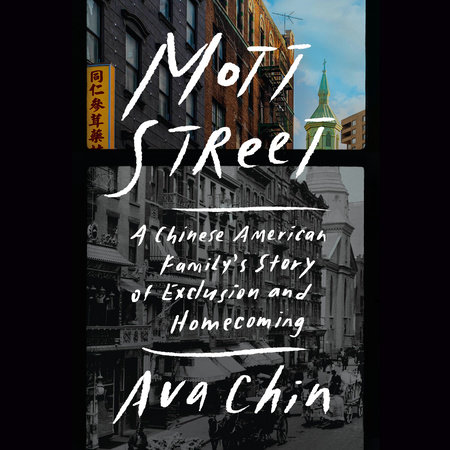READERS GUIDE
1. Author Ava Chin’s family has lived in the same building in the heart of New York City’s Chinatown for over a century. What is the significance of the building and its tight-knit community to the larger story?2. What was the Chinese Exclusion Act (CEA)? What did the law do and what was its significance to the author and her Chinese American family?
3. Central to Mott Street is the bond between Uncle Dek Foon and Aunt Elva Lisk. What secret is Elva harboring that affects their early courtship? What societal expectations are they breaking when they get married in the early 1900s?
4. Because CEA was so restrictive, many Chinese, including members of the author’s family, were forced to enter the country in a variety of different ways. How did Great-grandfather Chin On enter the U.S.? How did Great-grandmother Chun and her daughter cross over? How was this different from the way that Yulan and her sons entered the country?
5. What was the relationship between the author’s great-grandmothers Chun and Yulan? How were their lives changed by living in the same community and the same building on Mott Street? How does their relationship change by the end of the book?
6. Chinese Exclusion created many family separations, and for several years, the author’s great-grandmother Yulan raised their children like a single mother. How was Yulan able to keep the family together while separated from her husband? In later years, once they were reunited and living in NYC, how was she able to save the family from her husband’s excesses?
7. Starting in 1870, Chinese living in America were not allowed to become U.S. citizens. How did this disenfranchisement impact the author’s family and others like them? What were some of the ways in which the author’s family members sought to prove that they were patriotic Americans, despite the laws?
8. The author’s estrangement from her father is a motivating factor in why she embarked upon this journey of trying to understand her family. She states: “I learned early on how Exclusion isn’t just a political condition, but a deeply personal one that exists even within families.” What does she mean by this?
9. At the end of Chapter One, the author writes: “When you’re Chinese in America, with roots that stretch back to the Exclusion era, it is the historical record that is a fabulist fabrication, and the oral stories, passed down from generation to generation . . . that ultimately hold the keys to the truth.” What do you think the author means by this?
10. All families have origins stories that explain how they got here and from where they came. Which stories in Mott Street resonated with you the most? In your personal experience, which stories fascinated you about your own family when you were growing up?






















